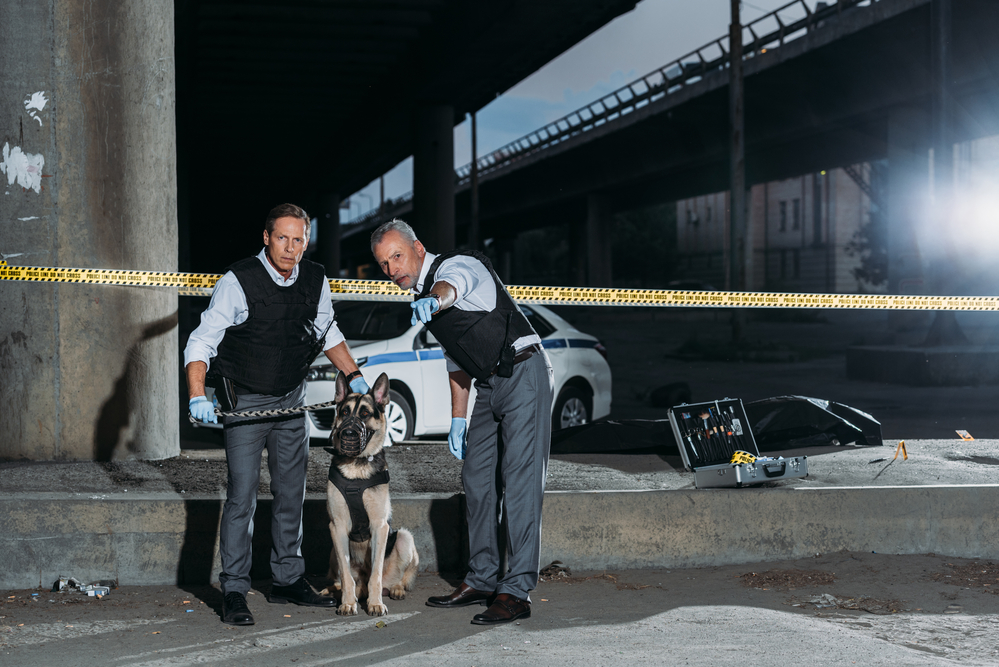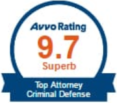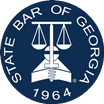Experienced Drug Crimes Defense Attorney
in Madison, Georgia

Anybody who has been arrested for a drug crime in Georgia knows the stakes for being convicted are high. Along with a fine, and jail time, it may mean forfeiture of your property, affect your ability to get a job, have a negative impact on child custody or visitation rights, and cause rifts with family, and friends. For all those reasons, and more, if you or someone you care about is facing a felony or misdemeanor drug charge, it is vital that you put an experienced drug crimes lawyer on your side: one who will aggressively fight for you.
Michael Fulcher Law has a track record of successfully defending people against drug charges in Morgan, Greene County, Putnam, Jasper, Taliaferro, Newton Counties, and surrounding communities, including the crimes of:
- Drug possession
- Possession with intent to distribute
- Possession with intent to sell
- Drug trafficking
How a drug crime lawyer can help defend against your charges
When it comes to helping people in need of solid legal representation in drug crime cases, we bring loyal advocacy, and zealous protection of our clients’ constitutional rights to the table.
We understand the Georgia drug laws, and make sure to take advantage of all potential avenues for your defense from police violations of probable cause to changes in the law that work to your benefit.
We have faced the prosecutors who may be involved in your case, and know how to counter their strategies.
We bring all our skill, and experience in defending people who have been accused of drug crimes, and will tailor a strategy to your specific situation.
Your defense starts with listening to your story, so we can start looking for the best strategy to refute the police, and prosecution claims, spot potential legal obstacles, and help you achieve the best possible results.
When choosing the right drug crimes attorney to help you, look for one who:
- Thoroughly investigates the prosecution’s evidence
- Takes a comprehensive approach by addressing every detail in building your case
- Gives you options, so you can think about what plan of action is in your best interest
- Is responsive, and answers your questions in a clear, concise manner
- Is local, and understands the laws in your jurisdiction
- Is effective, and competent, with a record of successful outcomes on cases similar to yours
- Is an advocate who is relentless when it comes to your defense
Among the most common drug crimes in Morgan County are those involving marijuana. Although it is used medicinally, marijuana is a Schedule I drug under federal law, putting it in the same category as heroin, and LSD, among others. In Georgia, there is no legal use for cannabis: using, buying, selling, and growing are all still illegal (although Atlanta, and several other cities have decriminalized possession of less than one ounce), and medicinal use is highly restricted. There is little chance that laws regarding recreational marijuana use laws will loosen up any time soon: efforts to allow it have been rejected many times over.
Whether charged with possession, distribution, use or sale of marijuana or any other involving crime including methamphetamine, cocaine/crack cocaine, prescription drugs, we work hard to mitigate your charges or get them dismissed.
It is more than our experience, it is our passion to tip the scales in your favor, and to protect your rights, and your freedom.
CALL US NOW
FOR A FREE CONSULTATION
Facing legal challenges, whether it’s a DUI, criminal charge, or navigating traffic-related offenses, requires a skilled advocate. Turn to Morgan County’s Michael Fulcher Law for a blend of legal expertise and unwavering client service from a former Georgia prosecutor. Discover the optimal legal solution for your situation by calling our criminal defense law firm at (706) 438-1555 or reaching out online. Schedule your free consultation today and gain a clearer path forward.
Why you need a qualified drug crimes lawyer if charged with drug trafficking
Overall, Georgia has among the strictest drug laws in the U.S. Of course, some charges are more severe than others. Among the most serious of drug crimes is drug trafficking, which is generally defined as the crime of possessing, selling, transporting, or illegally importing unlawful controlled substances or prescription drugs over an amount specified by law.
Georgia’s laws mirror federal statutes in most cases., and while it is similar to drug possession, drug trafficking is a felony. So, yes: you need a skilled, knowledgeable, and aggressive attorney if you have been charged for drug trafficking because—while they vary depending on the drug “schedule”, and the amount—penalties for a conviction may include:
- Possession (trafficking) of any Schedule I or narcotic Schedule II drugs: punishable with 5-30 years in prison. Subsequent convictions are punishable with 10-40 years or life in prison. According to the Drug Enforcement Agency (DEA), Schedule I drugs are defined as “drugs with no currently accepted medical use, and a high potential for abuse.” Schedule II drugs are considered dangerous as they have a “high potential for abuse” that may lead to “severe psychological or physical dependence.” Examples of schedule II drugs are Vicodin, cocaine, methamphetamine, fentanyl, and oxycodone/OxyContin.
- Possession (trafficking) of Schedule III, IV, or V drugs: punishable by 1-10 years in prison. Subsequent convictions are punishable with 1-10 years in prison. These include drugs that have a moderate to lower potential for abuse and/or physical or psychological dependence.
The only real difference between drug trafficking, and possession with intent to distribute is generally the amount. In the case of marijuana, if it is about an ounce or so, it will be construed as more than possession for personal use; but it could be considered enough for possession with intent to distribute. However, laws can be tricky. With cocaine, for instance, the amount of drug is tied to its purity; ergo, if the cocaine is less than 10 percent pure, the “weight” would be less than cocaine that is more than 10 percent pure. The Court would assess the percentage of purity, and multiply it by the weight you were carrying to come up with an appropriate sentence.
Other factors that impact penalties include “enhancements,” in which the judge may increase the penalty because of circumstances beyond the trafficking charges. For example, the trafficking took place within 1,000 feet of a school or other “drug-free” zone. In that case, the Court could very well increase (enhance) the jail sentence, fines, or other punishments.
A drug trafficking charge must be taken seriously because the consequences can be severe. Being found with just seven teaspoons of meth carries a mandatory minimum drug trafficking sentence of 10 years. If the quantity is 400 grams or more, the mandatory minimum sentence is 25 years plus a $1 million fine.
Punishments for trafficking marijuana, cocaine, and other illegal drugs can be equally serious. Busted for trafficking marijuana? If it involves 10 pounds or more, you could be looking at a minimum five year prison term plus a $100,000. In fact, a violation of any provision of Georgia Code § 16-13-31 can lead to “an applicable mandatory minimum punishment, and for not more than 30 years of imprisonment, and by a fine not to exceed $1 million.”
If federal drug trafficking charges are leveled, expect the penalties to be even more extreme. For example, being convicted for a trafficking charge for five kilograms (about 11 pounds) of cocaine, and you could be imprisoned from 10 years to life, and be fined up to $10 million—and that is for a first offense.
As your qualified drug possession, and drug trafficking lawyer, we leave no stone unturned in finding flaws in the prosecution’s case, including improper police procedure, improper search, and seizure, lack of drug possession evidence (including “constructive possession”), or mistakes in the testing or chain of custody of the evidence. If your rights were violated, we will seek to have your case dismissed by winning a Motion to Suppress, and preventing the State from using certain evidence against you in a trial.
If you have been charged with a drug crime, we urge you to contact us immediately by calling our office at (706) 438-1555. You have the right to an attorney, and it is in your best interest to talk to a lawyer before you talk to the police. It is common to ask, “where can I find a drug lawyer near me who can help?” We are located in Morgan County, and handle cases in courts in Greene County, Jasper County, Putnam County, Newton, and Taliaferro Counties.
Frequently Asked Questions
Don’t talk to the police until you talk to us
If you are facing a drug charge, you feel like you’re facing an uncertain future. We provide the steady hand, and clear strategic thinking you need following an arrest. Let our trial-tested drug crimes defense lawyer use his experience, and insight to positively impact your case, and get you the best possible results. For a free, and confidential consultation, and to discuss your immediate needs, contact us online or call us at (706) 438-1555.
AMAZING WORK
“Mr. Fulcher has been tremendously helpful with my case. Since hiring him he has consistently returned my calls as quickly as he can. We discussed an ideal outcome, and I set about doing exactly as he said. Following his advice we were able to get a very favorable outcome. He is always quick to answer any questions, and has stayed very engaged with me throughout this ordeal. Michael provides excellent counsel, and I would recommend him to anyone!”
— TOM




